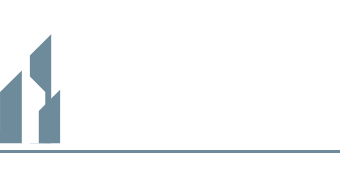This op-ed by ICBA President Chris Gardner first appeared on the Orca on April 21, 2020.
A deep sense of resignation and inevitability has settled in as we have watched the deliberate shut down of economies and countries in rapid succession around the globe.
 Decisions to close businesses and borders on the scale we have witnessed are unprecedented – never before in history have governments moved with such purpose to dispatch the engine of our prosperity and direct millions to simply “stay home”.
Decisions to close businesses and borders on the scale we have witnessed are unprecedented – never before in history have governments moved with such purpose to dispatch the engine of our prosperity and direct millions to simply “stay home”.
Under the threat of fines or even jail, the comfort of life’s daily routines has come to an end. Much has been taken away – schools, playgrounds, restaurants, sports, celebrations, community events and simply just spending time with family, friends and neighbours. Gone or at risk are millions of jobs, along with business and industry that sustain and give meaning to our communities and our fellow citizens.
The social and economic upheaval we face is agonizing and heart-breaking for many individuals, families and communities. In ways we have yet to fully grasp, the repercussions of COVID-19 will be harsh and unforgiving. There is no playbook for what we are facing because for the first time since World War II, a generation is being called collectively into action and tested in ways that are difficult to fully comprehend.
In B.C., the collective sacrifices being made to “flatten the curve” appear to be working with our province recording some of the best results in North America. It’s now time to consider how we recalibrate our communities and how to restart large parts of our economy.
Against the backdrop of disruption, dislocation and deprivation that has been thrust upon individuals and businesses, three things have become abundantly clear over the past few weeks.
First, governments cannot backstop the massive economic losses facing individuals and businesses indefinitely, and the sooner we safely restart economic activity, the better. Second, the ferocity with which COVID-19 devastated families and communities cannot be underestimated, so getting people safely back to work is essential. And third, Canada’s economy was on perilous footing before COVID-19 struck, so the plan for how we emerge the current crisis is all the more important.
What is now required from our leaders is a road map to the new normal – and an answer to a simple question – how do we live with COVID-19 until a vaccine is found? How will our community centres, schools, sports venues, churches and places of work again be natural gathering places?
Starting points for recovery must include ways to get restaurants and coffee shops open again, albeit with new customer spacing measures. Local shops, personal service providers and malls all have to open their doors in ways that can be done safely.
Now is the time to expedite tenders for work on roads, bridges, ports, airports and local transit that improve long-term competitiveness and support diverse economic sectors, keep people and goods moving and help improve affordability for working families.
Given that fully 85% of the men and women who work in construction work for open shop companies, the government must ensure that every B.C. construction contractor and every construction worker has a fair shot at this work. Expensive special favours and tendering requirements that grant preferential status to select unions must end. After all, we all really are in this together.
Finally, there has never been a better time for the province to increase funding to colleges and technical institutions for trades training. We have all been thrust into a new world of online meetings. It’s time to leverage these new platforms for training and educating the next generation of skilled workers.
We are in the middle of a calamity not seen or experienced in any of our lifetimes. We now need clear thinking and bold action to see us through this crisis in a way that preserves people, communities and businesses, and provide resiliency against future threats like COVID-19.

